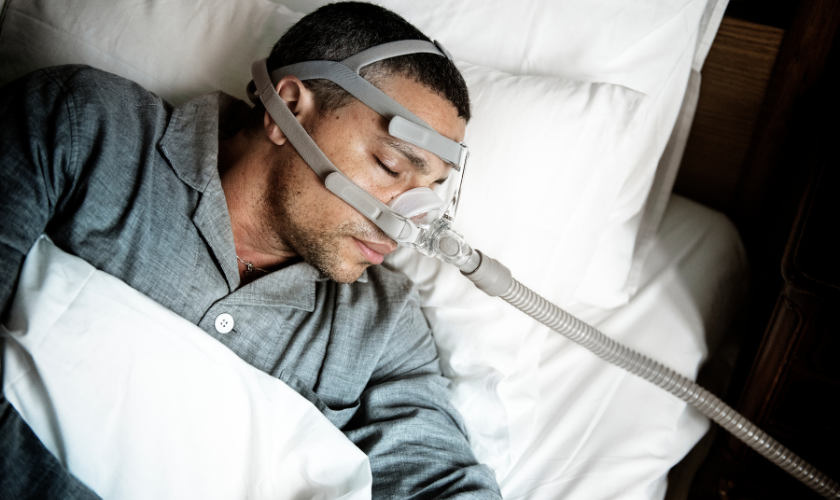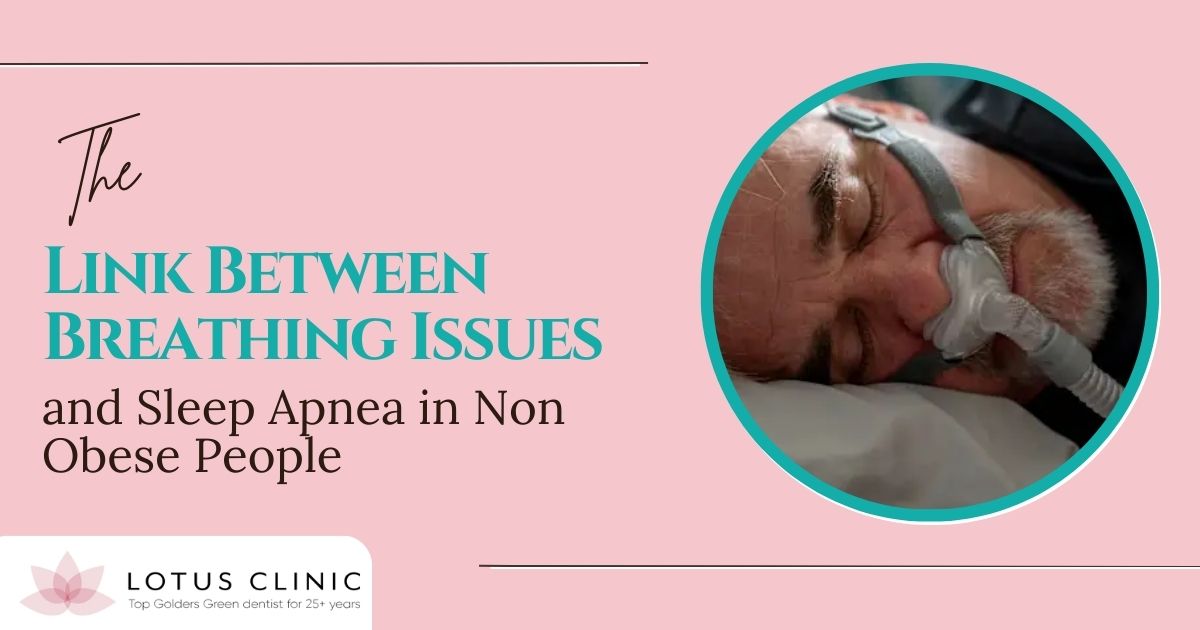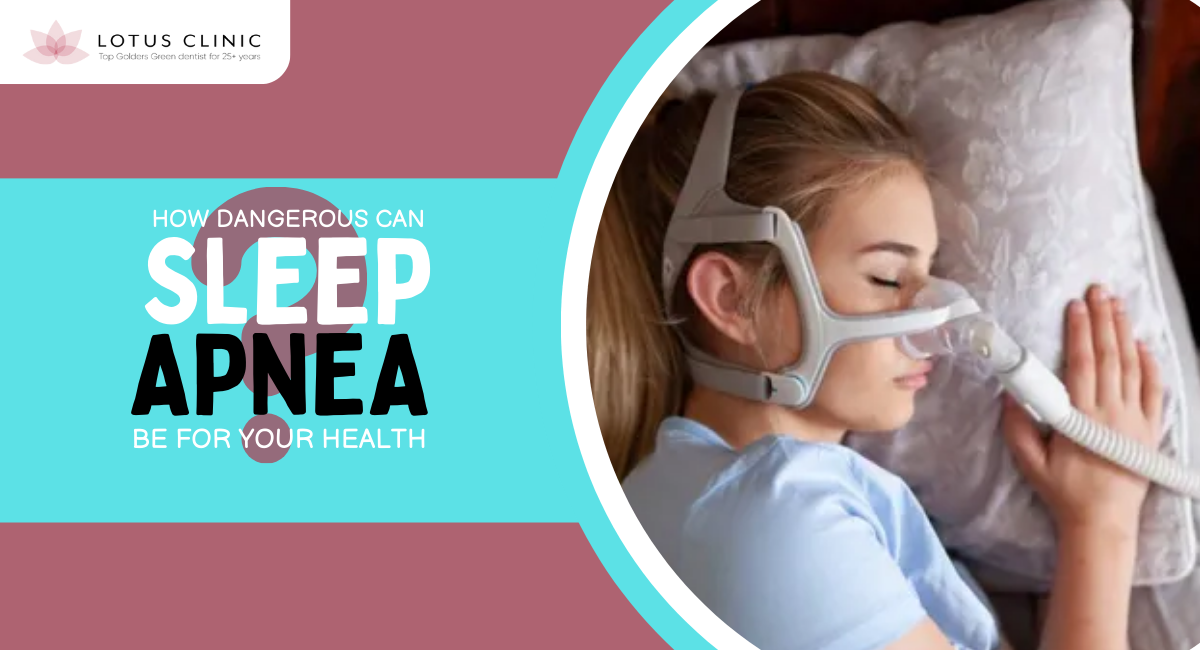943 Finchley Rd, London NW11 7PE
Dangers of Sleep Apnea – Why Prompt Treatment is Necessary?

Have you ever woken up feeling exhausted despite a full night’s sleep?
Or perhaps your partner has noticed you snoring loudly or even gasping for air during the night?
These could be signs of a common yet serious sleep disorder known as sleep apnea. Characterised by repeated interruptions in breathing during sleep, sleep apnea can have far-reaching consequences on your health and well-being.
Imagine your body being deprived of oxygen multiple times throughout the night. This stress not only disrupts your sleep but also places immense strain on your cardiovascular system. Untreated sleep apnea has been linked to an increased risk of hypertension, heart disease, and stroke.
Moreover, it doesn’t stop there; it can impair cognitive function, contribute to mood disorders like depression and anxiety, and even impact your performance at work or school.
Understanding the dangers of sleep apnea is crucial for everyone, whether you’re experiencing symptoms yourself or concerned about a loved one’s health.
In this blog, we’ll explore the signs, risks, and why seeking timely treatment is essential for managing this potentially life-altering condition.
Signs and Symptoms of Sleep Apnea
Sleep apnea is a serious sleep disorder characterised by interruptions in breathing during sleep. Recognising its signs and symptoms is crucial for timely intervention and treatment.

- Loud Snoring: One of the most noticeable signs of sleep apnea is loud and persistent snoring. It often occurs in individuals with obstructive sleep apnea (OSA) when airway muscles relax and collapse, obstructing airflow.
- Gasping or Choking Episodes: People with sleep apnea may experience episodes where they gasp for air or choke during sleep. These abrupt awakenings are the body’s response to a lack of oxygen.
- Excessive Daytime Fatigue: A hallmark symptom of sleep apnea is excessive daytime sleepiness, even after a full night’s sleep. This persistent tiredness can affect daily activities and productivity.
- Morning Headaches: Waking up with frequent headaches is common among sleep apnea sufferers. These headaches result from fluctuating oxygen levels during sleep.
- Difficulty Concentrating: Cognitive impairment, such as difficulty concentrating or memory problems, is another consequence of poor sleep quality caused by sleep apnea.
- Mood Changes: Sleep apnea can lead to irritability, mood swings, and even depression due to the chronic sleep deprivation it causes.
Health Risks Associated with Untreated Sleep Apnea
Untreated sleep apnea can have significant implications for both physical and mental health. Understanding these risks underscores the importance of timely diagnosis and intervention.

Cardiovascular Risks
Sleep apnea is closely linked to cardiovascular problems, including:
- Hypertension (High Blood Pressure): Interruptions in breathing lead to oxygen deprivation, triggering the body’s stress response and raising blood pressure levels.
- Heart Disease: Chronic oxygen deprivation and increased blood pressure can contribute to the development of coronary artery disease, irregular heart rhythms, and even heart failure.
Impact on Mental Health
Sleep apnea can adversely affect mental well-being, contributing to:
- Depression: Sleep deprivation disrupts neurotransmitter levels, impacting mood regulation and increasing the risk of depressive symptoms.
- Anxiety: Stress hormones released during sleep disturbances can exacerbate feelings of anxiety and overall emotional distress.
Increased Risk of Accidents
Daytime sleepiness resulting from poor sleep quality can impair cognitive function and motor skills, leading to:
- Accidents: Individuals with untreated sleep apnea are at a higher risk of workplace and traffic accidents due to impaired alertness and slower reaction times.
Consequences on Overall Well-Being
Understanding the consequences of untreated sleep apnea extends beyond physical health to encompass cognitive function, memory, and interpersonal relationships:

- Cognitive Function and Memory: Chronic sleep fragmentation and oxygen deprivation impair cognitive abilities such as concentration, problem-solving, and memory retention.
- Relationship and Social Impacts: Sleep deprivation can lead to irritability, mood swings, and decreased libido, affecting relationships with partners, family, and friends. The resulting fatigue often limits participation in social activities and diminishes overall quality of life.
Importance of Prompt Treatment
Prompt treatment for sleep apnea is vital to mitigate its adverse effects on health and quality of life. Here’s why early intervention matters and the treatment options available:

Benefits of Early Diagnosis and Intervention:
- Reduced Health Risks: Early treatment lowers the risk of developing serious health conditions like hypertension, cardiovascular disease, and stroke associated with untreated sleep apnea.
- Improved Daytime Functioning: Addressing sleep apnea early enhances daytime alertness, concentration, and productivity, leading to better overall cognitive function and mood stability.
- Enhanced Quality of Life: Effective treatment improves energy levels, reduces fatigue, and enhances emotional well-being, promoting a more fulfilling lifestyle.
Available Treatment Options:
- CPAP Therapy (Continuous Positive Airway Pressure): A common and effective treatment method that involves wearing a mask during sleep to deliver pressurised air, keeping airways open.
- Oral Appliances: Custom-fitted dental devices reposition the jaw and tongue to prevent airway obstruction, suitable for mild to moderate sleep apnea cases.
- Surgical Interventions: For severe cases or anatomical abnormalities, surgical procedures may be recommended to correct nasal passages or reposition tissues in the throat.
Lifestyle Changes to Manage Sleep Apnea
Managing sleep apnea often involves incorporating lifestyle changes alongside medical treatments. Here are key strategies to consider:

- Weight Management: Maintaining a healthy weight reduces the severity of sleep apnea symptoms, as excess weight can contribute to airway obstruction during sleep.
- Sleep Hygiene Practices: Establishing consistent sleep routines, ensuring a conducive sleep environment, and avoiding stimulants like caffeine and nicotine close to bedtime can improve sleep quality.
- Positional Therapy: Sleeping on one’s side rather than the back can sometimes help alleviate mild sleep apnea by preventing the tongue and soft tissues from blocking the airway.
Understanding the risks of untreated sleep apnea underscores the importance of timely intervention. By addressing symptoms promptly and adopting effective sleep apnea treatment, individuals can mitigate health risks and enhance overall well-being, ensuring better sleep and quality of life.






